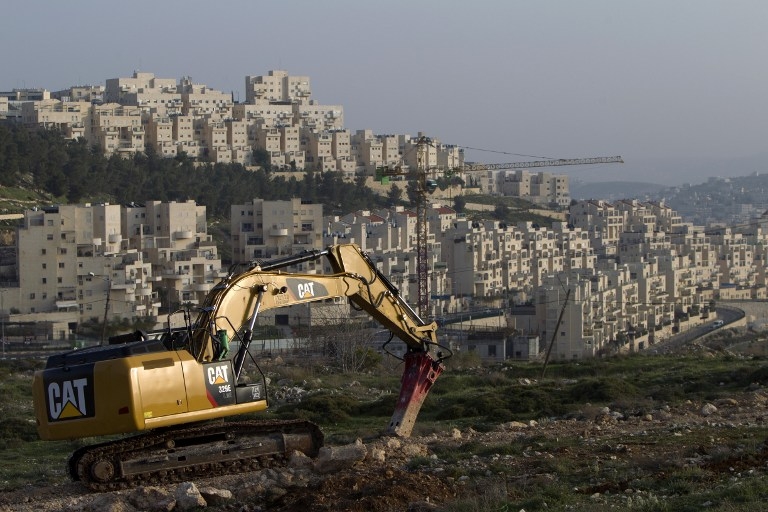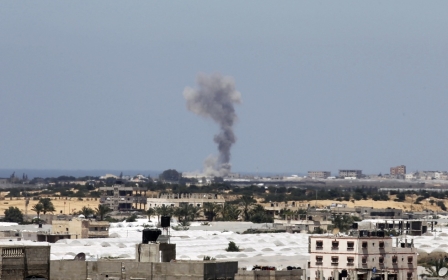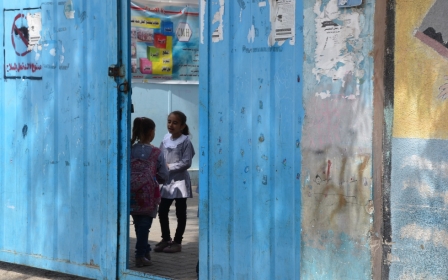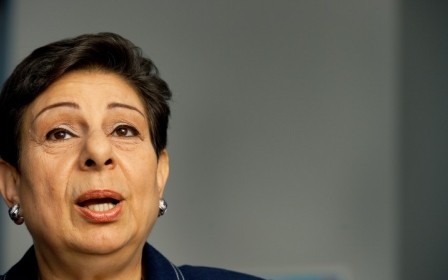Abbas: Talks can resume if Israel freezes settlement construction

Palestinian President Mahmoud Abbas held talks on Thursday with visiting US National Security Advisor Susan Rice, during which he reiterated conditions for the resumption of peace talks with Israel, a source close to the Palestinian leader said.
Over dinner at Abbas' headquarters in Ramallah, Abbas said he is willing to extend peace negotiations if Israel pledges to freeze settlement construction in occupied East Jerusalem and the West Bank for three months, releases the fourth batch of Palestinian prisoners as agreed earlier and agrees that the talks would tackle the borders issue first, the source, who asked not to be named, told Anadolu Agency.
The source did not state whether Rice introduced new proposals for the resumption of the US-mediated talks. The White House, however, said despite the halt in the talks, the US remained committed to the process.
"Ambassador Rice underscored that, while we have come to a pause in the parties' talks, the United States believes the only way to achieve lasting peace is through direct negotiations that lead to two viable, independent states living side-by-side in peace and security," another White House statement said after their meeting.
Referring to the Hamas rapprochement: "She reiterated US policy that any Palestinian government must unambiguously and explicitly commit to nonviolence, recognition of the State of Israel, and acceptance of previous agreements and obligations between the parties," the statement said.
The meeting is the first to bring together Abbas and a high-level US official since the 29 April deadline set for the talks expired.
Rice arrived on Wednesday in Israel for a two-day visit as head of the US-Israel Consultative Group, which meets regularly to discuss bilateral and regional security issues. According to the White House, Rice's accompanying delegation includes senior representatives from the US departments of state, defense and the treasury, as well as the US intelligence community.
She held talks with Prime Minister Benjamin Netanyahu and President Shimon Peres in West Jerusalem.
During her talk in Jerusalem with Netanyahu and senior officials from both sides, Rice assured Israel that Washington remained determined to stop Iran developing nuclear arms, according to the White House.
"The US delegation reaffirmed our commitment to prevent Iran from acquiring a nuclear weapon," said a White House statement.
"The delegations held thorough consultations on all aspects of the challenge posed by Iran, and pledged to continue the unprecedented coordination between the United States and Israel," it added.
Earlier, Netanyahu said the best defence against a nuclear Iran was to block it from developing such a weapon in the first place and he referred to a new round of talks between Tehran and world powers due to open next week in Vienna.
"The most important thing is that Iran does not attain the ability to develop a nuclear weapon, and that needs to be and must be the ultimate and most important goal of the current negotiations with Iran," he said.
"That needs to be the object of the talks, that is Israel's position, that needs to be the position of everyone who really wants to prevent the renewed threat of mass destruction by a radical regime," Netanyahu said at a ceremony marking the 69th anniversary of the allied defeat of Nazi Germany.
Middle East Eye propose une couverture et une analyse indépendantes et incomparables du Moyen-Orient, de l’Afrique du Nord et d’autres régions du monde. Pour en savoir plus sur la reprise de ce contenu et les frais qui s’appliquent, veuillez remplir ce formulaire [en anglais]. Pour en savoir plus sur MEE, cliquez ici [en anglais].




